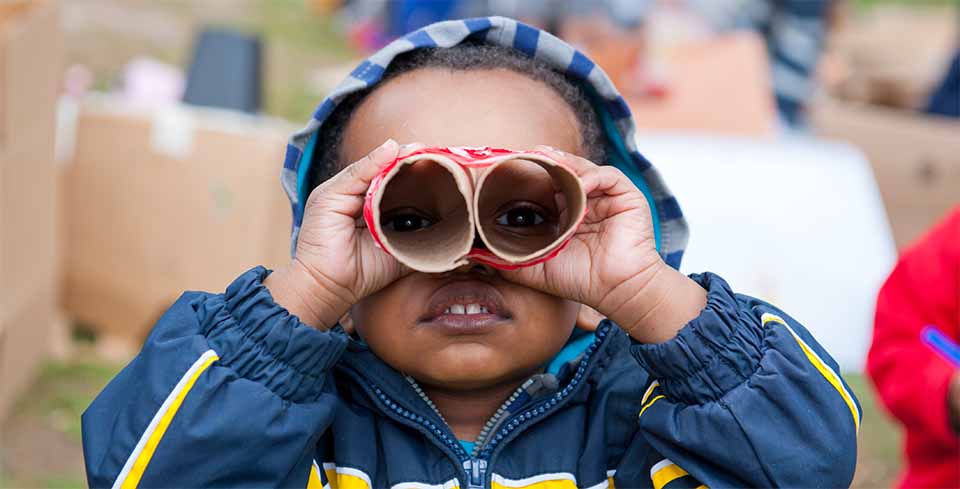
Embracing Play
Saturday, November 8, 2025
9am–5pm
Join us for a full day of conversations and workshops focused on the importance of play in children’s lives and the need for adults to create and sustain crucial play opportunities for children in their homes, schools, and community spaces. Play, in all these contexts, is essential for supporting intellectual, social, and emotional well-being of children and adults. Together we will consider how to advocate for and embrace more time and space for play.
Sarah Lawrence College is an Approved CTLE Sponsor and offers 7 CTLE hours for this program.
Schedule for the Day
9:00–9:30am
Check in & Coffee
9:30–10:30am
Embracing Play: Conversation with Tricia Hanley and Cindy Parson Puccio*
10:45am–12:15pm
Small Sessions A
12:30–1:30pm
Lunch
1:45–3:15pm
Small Sessions B
3:30–4:30pm
Play Embraced: Panel with the Conference Presenters
4:30–5:00pm
Tea & Conversation
* Made Possible by the Wright Lecture Series
Small Sessions A
More. Free. Play: Why Children Need it and How We Can Support It
Cindy Parson Puccio
It’s simple and it’s widely known. Children need more free play in their day. During free play children learn empathy, build confidence, develop language skills, practice social problem solving, explore cause and effect relationships, learn critical thinking, develop self-regulation and executive functioning, and navigate the nuances of friendships. The research overwhelmingly supports the many benefits of free play and unstructured time for children, and yet more and more, we see that young children are over-scheduled, over-stimulated, and overwhelmed. This presentation will address the ways in which free play supports emotional wellbeing, creativity, and self-regulation. We will discuss ideas for free play, decreasing screen time, and how children - and we - can increase our connection to one another.
Nature and Nurture: Outdoor Play and the Built Environment of Children’s Play Spaces
Lorayne Carbon and Kim Ferguson
In this workshop, we will discuss a community-based participatory action program and research project to redesign Sarah Lawrence College’s Early Childhood Center outdoor play spaces to better support children’s play. Children across the globe indicate a preference for, and engage in more complex play in, safe, green play spaces. The most positive of these types of spaces include spaces with places to sit, spaces where children can gather away from adult monitoring, spaces that provide safety and distancing from traffic and noise, spaces with natural elements, and spaces with physical characteristics and materials conducive to play, particularly when there is some gradient of opportunity to test out physical and cognitive competencies. In this workshop, we will discuss both the research behind our ongoing play yard redesign project and our ongoing collaborative research designed to better inform our ongoing work. This research involves play observations of children in these spaces; interviews, focus groups, and conversations with the children; insights from ECC teachers based on years working with children in these spaces; playspace tours by ECC children; and interviews, focus groups, conversations, and playspace tours with ECC alumni.
Panel Discussion: Resisting Through Play
Jerusha Beckerman
A panel of teachers, moderated by Art of Teaching program director Jerusha Beckerman, will describe some of the ways in which they make space for different kinds of play to happen in their classrooms – alongside of, and in some cases despite, increasing pressures and mandates from the school, district, state and federal levels. They will talk about their roles as advocates for children’s play and why this is important to them as teachers. Participants will also have time to ask questions and discuss how this relates to their own practice and experiences.
Small Sessions B
Play Is Not a Privilege: Embedding Progressive Practice In Public Education
Emily Cullen-Dunn
Through looking at one teacher’s reflection of practice from a private progressive Preschool setting to a public self contained special education classroom, discussion will center on the place of play in our children’s education. Who has the right to play? How do we advocate and make room for play in the spaces our children inhabit? Participants will be encouraged to bring forth their stories to share and inspire others to push back on the systems that threaten play and find the cracks where we can center joy in our children’s lives.
Adventure Play, Playwork, and Repairing the World Through Play
Yoni Kallai
Join Yoni Kallai, play:groundNYC’s Program Director, Head Playworker and Co-founder for this session where he will cover concepts of adventure play and playwork while participants process their own experiences in childhood and figure out how we can each help in repairing the world through the power of play.
Play’s the Thing: Community Adventure Play Experiences (CAPEs) for All Children
Kim Ferguson
In this session, we will discuss a participatory action community-based program and research project that includes the development, implementation, and ongoing evaluation of Community Adventure Play Experiences (CAPEs) in rural, urban, and peri-urban settings in the United States, southern and East Africa, and across the globe. CAPEs are play experiences created by children using “loose parts”, natural, recycled, and other found materials available in their communities such as cardboard boxes, tires, fabric, recyclables, sand, wood, and water. They encourage children across diverse contexts to use their imaginations, develop initiative, collaborate, and problem-solve using materials found in their communities. Play facilitators ensure a safe physical and emotional space and assist children in their play as directed by the children themselves. Thus, CAPEs provide the opportunity for children in both low- and high-resource settings to engage in the creative, child-directed, open-ended play that is a crucial mode of learning for all children. In this workshop, we will consider intersections of theory, research, and practice as we understand the theory and research behind the CAPE program and consider how best to introduce it in varying school, home, and community settings through hands-on play and collaborative discussion. We will also introduce a CAPE Toolkit developed for organizations, parks, schools, and families interested in facilitating CAPEs across diverse communities.